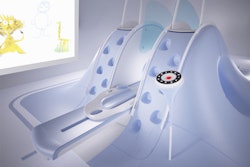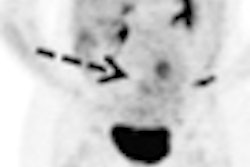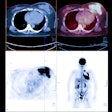GE Healthcare said that its investigational PET radiopharmaceutical for identifying Alzheimer's disease is showing promise in clinical research.
Results to be presented at this week's Alzheimer's Association International Conference in Paris show that GE's F-18 flutemetamol amyloid imaging agent is comparable to carbon-11 Pittsburgh Compound B (C-11 PiB) in its ability to bind to beta amyloid in vitro, according to the company.
In addition, another study suggests that flutemetamol reader training can provide a highly consistent method for interpreting PET images, GE said.
A third paper to be presented indicates that flutemetamol imaging was consistent with the understanding that normal pressure hydrocephalus (NPH) -- a progressive condition associated with dementia, gait abnormalities, and urinary incontinence -- represents a heterogeneous population with evidence of Alzheimer's pathology, the firm said.




















